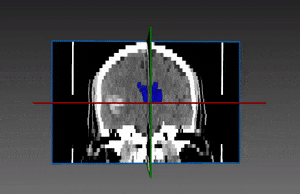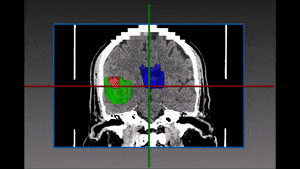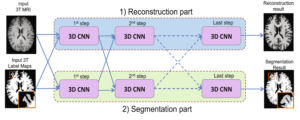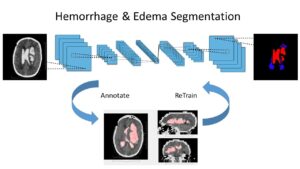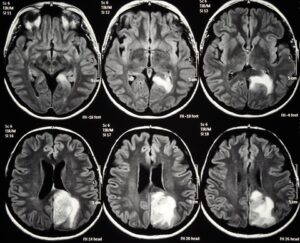Most of the tissue handled by the surgeon (or by a robotic hand) during brain surgeries is flexible: With the obvious exception of bone, which is rigid, all the structures touched during the surgery change shape and place. For instance, by changing the force applied to the brain, like when the skull is opened, the pressure on the brain changes and, as a consequence, its shape changes too.

It is key for the surgeon to know where each point has moved to: if the tumor that needs to be treated was in one place, where is it now? This is a very important challenge that needs to be solved by the surgical team in real time.
Until very recently, surgeons made assumptions: for instance, they assumed that the motion is rigid. This assumption is obviously incorrect, but it was the best available hint to what was going on in the treated region. Of course, the most expert surgeons could do excellent work even with some amount of guessing. The better the human expertise involved, the better the guess – and, generally, the outcome as well.
Unfortunately, the opposite case could also be true: physicians at the beginning of their career might lack the educated guess of their seniors and, as a consequence, may bring about less positive outcomes.
Very encouraging advances have seen the light in recent years, in particular in the field of AI-assisted image analysis; new technologies now give access to better solutions, providing a precious assistance to the surgical teams. Some of these breakthroughs are adding a whole set of possibilities to previously existing classics, like segmentation and feature tracking. In particular, advanced deep learning algorithms can process calculations much faster and offer much more reliable results; they can do that in real time, during the surgery, when supporting information is most needed.
For instance, if the surgical team wants to focus on a specific region, they could start by running a segmentation of that region as a first step, and decide to track what they deem important to be tracked, choosing at will what soft tissues need to be followed. They can even decide to ignore surgical tools and remove them from the field of view as if they weren’t obstructing the eye of the surgeon. Key landmarks correspondence is done much better, making it easier to take crucial decisions regarding the physical soft tissue being treated.
These new solutions, thanks to advanced AI algorithms, are much more timely, accurate and reliable than ever before. They are more stable and, as such, more convenient, since they need fewer human corrections, many of which had some level of guessing. When old algorithms did their calculations, these were valid only for some time until the next important change in the region, after which the whole calculating process needed to be started over again. Now it is much easier to keep track even of the soft tissues in the operated region. RSIP Vision’s engineers are fully trained to develop soft tissue tracking solutions that are crucial during brain surgeries. We will be happy to discuss your project.

